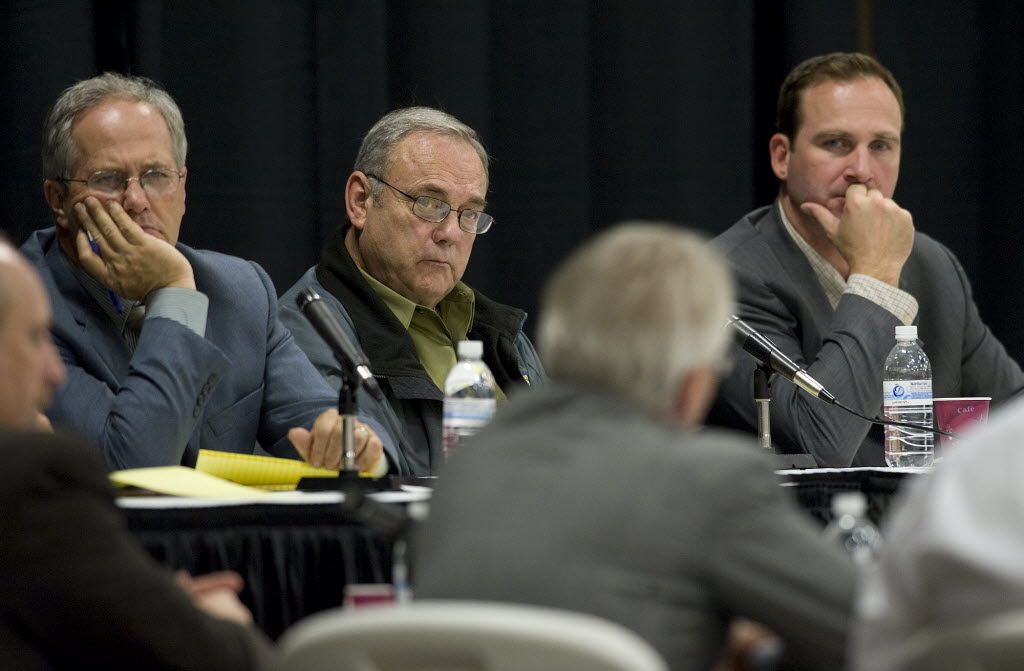Clark County commissioners on Tuesday are expected to approve a slate of incentives to spur new business development, including waiving or reducing traffic impact fees.
Commissioners will vote on the five proposals after public hearings. The meeting starts at 6 p.m. Tuesday at the Clark County Public Service Center, 1300 Franklin St.
In February, commissioners approved a fee holiday for certain businesses that expires in September. One of Tuesday’s proposals would extend the fee holiday through the end of 2013, said Director of Community Development Marty Snell.
Under that fee holiday, the county would waive 100 percent of fees for development proposals that will create a minimum of 15 full-time jobs and are located in industrial, mixed-use, business park or office campus zoning districts.
The county will also waive 50 percent of fees for any commercial developments that create a minimum of 15 full-time jobs.
Waived fees include those for preliminary plan review, development engineering plan review and inspections.
Another proposal Tuesday will build in flexibility to the fee holiday by shifting the focus to the type of development rather than the zoning district.
The county will also consider waiving or reducing traffic impact fees, using the same criteria as the fee holiday.
A third proposal would permanently change the way traffic impact fees — charged on new development based on the number of new trips it’s expected to generate — would be paid. It would give developers an option to pay the fees off in installments over five years, with “reasonable” interest, instead paying a lump sum.
Altogether, the waived fees could equal tens of thousands of dollars per project, Snell said.
The 14-month-long fee holiday that expired Dec. 31
resulted in the county waiving approximately $400,000 worth of fees, budget director Jim Dickman said earlier this year. That money had to be transferred from the county’s general fund to cover the waived fees, as the county’s community development department operates almost entirely on fee revenues.
Waived development fees under the new proposal will be made up with funds paid out of the county’s general fund, and waived traffic impact fees will be made up with funds from either the general fund or the road fund, Snell said.
The other two proposals are to extend deadlines to complete projects that received preliminary approval between June 1, 2004, and December 31, 2007, and to give developers more assurance of whether their projects will trigger expensive road concurrency requirements.
Months in the works
Commissioners have had county employees working on the proposals for months.
The general fund gets its money from the county’s share of property taxes; two-thirds of the general fund goes to pay for public safety.
Ideally, construction taxes, property taxes and sales tax revenues would make up for the waived fees, but that’s not working out to be the case for the projects that used the last fee waiver, Dickman said.
Of the business applicants who responded to a survey about the old fee holiday, two-thirds said the fee waiver made no difference in the location or timing of their project.
However, Vancouver-based tech company Tenn-Max America Inc., cited the fee holiday when it announced earlier this month that it will build a $1 million headquarters at 7500 N.E. St. Johns Road. It agreed to create 15 new jobs in order to qualify for the fee holiday.
County commissioners aren’t the only local elected officials trying to give developers a break on traffic impact fees, as the Vancouver City Council will consider in June whether to repeal the city’s traffic impact fee program for 18 months in order to completely redesign the 20-year-old system.
Stephanie Rice: 360-735-4508 or stephanie.rice@columbian.com.




